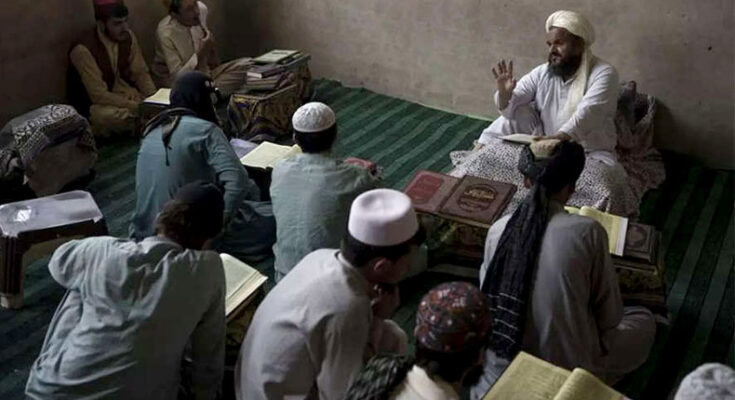Modern studies are less important than madrasa education – Taliban. Image Courtesy – Times of India
The Taliban want to change Afghanistan by seizing power and molding it to their liking. Twenty years ago, they took away the right to education for girls to education when they were in power. This time the Taliban has banned coeducation acquiring the administration. Students have to take classes in a separate room or in the middle of the same room at the university. They also told that modern studies are less important than madrasa education.
Boys’ schools are opening but girls’ schools are not. They have given up the girls’ education department and started the ethics department. This time, with the stroke of a pen, they informed that there will be no work with the students who have graduated from high school in the last 20 years. The Taliban want to imply that their degree is useless.
In a meeting with university lecturers in Kabul, the Taliban’s caretaker Higher Education Minister, Abdul Baki Haqqani, said, those who graduated from high school between 2000 and 2020 would be of no use. According to a news agency, the Taliban’s statement means that while they were fighting against the US-backed governments of Hamid Karzai and Ashraf Ghani, the education of those who graduated between 2000 and 2020 has no value.
Read: Afghan Taliban flags hoisted on Jamia Hafsa seminary in Pakistan
Abdul Baki Haqqani said that teachers should be recruited who would be able to spread values that would benefit the country between the present generation and the next generation, and Afghanistan could use their talents in the future. Haqqani has given priority to religious education. To put it bluntly, those who have been educated through the religious education system in madrasa deserve more value than those who have obtained a master’s or Ph.D. degree through the modern education system.
The period 2000 to 2020 is considered the best, precious time in Afghanistan by the standards of education. But it is clear from Haqqani’s words that the Taliban want to delete that episode completely.
The majority of Muslim families want that madrasas offer technical courses and vocational training for their children. But, the fact is that religious leader who can approve specific changes into the system of education are already against the modern system of education. As a result that most graduates from madrasas can find poorly paid jobs in madrasas, mosques, or shrines. Their professional expertise is not compatible with the modern job industry. Naturally, the socio-economic development in the Muslim community is very low in comparison to other communities of the world.
So what will happen to these graduates now? Undoubtedly, their future will be in doubt.





